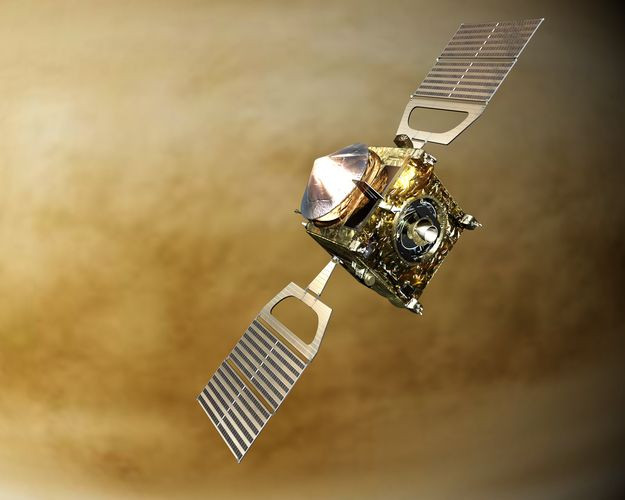Alien Life In Venus Could Exist: Earth-Like Rivers Discovered?

The Planet Venus, long considered to be Earth’s twin, is said to be hiding organic beings. New information revealed that the planet has “flowing rivers” that could host life.
The information comes from the BBC show “The Planets” hosted by English physicist Brian Cox. Cox, a professor in the School of Physics and Astronomy from the University of Manchester, said that Venus has drastically changed along with the evolution of our Sun. Although Venus is not the closest planet to the Sun, it is considered to be one of the hottest with a surface temperature of 500 degrees Celsius.
“The surface temperatures today on Venus are hotter than those on Mercury. And the story of Venus’ climate is further complicated by the fact that, over the lifetime of the planet, the Sun itself has been evolving. As the Sun gets older, the star burns hotter and hotter and hotter. That means that, in the past, when the Sun was younger, it must have been cooler and that has a big impact on the planets,” Cox said.
With this in mind, the physicist suggested that a cooler Venus may have hosted life as the planet could very well have all elements that could help support organic beings. “At the time when life was just about beginning on the Earth, three-and-a-half to four billion years ago, the Sun was fainter and that means that Venus was cooler. In fact, temperatures on Venus at that time would have been like a pleasant spring day here on Earth,” he said.
Per a report, Cox also shared that during this period it is possible that Venus was covered by bodies of water like rivers on Earth, which were protected by the planet’s atmosphere through the greenhouse effect. Because of this, it is not hard to imagine that life thrived on the second planet from the Sun.
As the Sun became hotter, however, the surface of Venus drastically changed. The atmospheric pressure is 92 times stronger than that of Earth. In hindsight, the pressure is roughly 900m below our planet’s ocean surface.
This major change could have affected life on the planet although it is possible that life continues to thrive here. On Earth, extreme temperatures and even pressure have not deterred certain creatures from surviving so the same theory might be possible in Planet Venus as well. Aside from Venus, Cox revealed that planets Mercury and Mars used to have favorable conditions just like Earth to support life.
Today, there are a number of countries that aim to study the volcanic surface of Venus. This includes India which plans to send an orbiter to the planet in 2023 and Russia which also plans to send in both an orbiter and lander to study Venus.
© Copyright IBTimes 2025. All rights reserved.





















